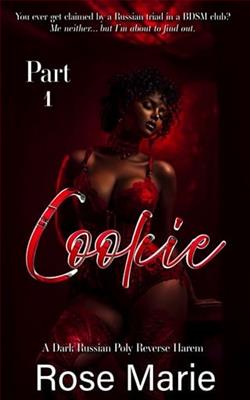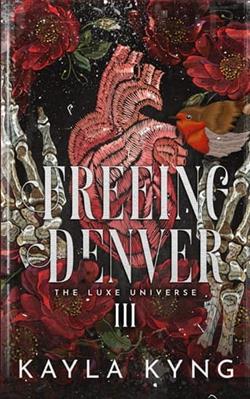Page 19 of The Villa
“Hi,” he says, offering his hand first to Mari, which she likes. It was all beginning to feel a little Boys Club to her, what with Noel and Pierce immediately attempting to impress each other.
“Hullo. I’m Mari,” she says, and he smiles, revealing a slightly crooked front tooth. Mari likes that tooth, too, likes that it breaks up the otherwise symmetrical perfection of Johnnie’s face.
“Mistress Mary, quite contrary,” Noel sings to himself, and then he surprises her by suddenly putting an arm around her shoulders, pulling her close.
“Like I said, I’ve needed fresh blood around here.” The smile he gives her seems genuine, and Mari once again tries to wrap her mind around the idea that the voice that sang “Autumn Sun” resides in the throat just inches from her face right now.
Then he reaches out his other arm, embracing Pierce as well, pulling both of them toward the house as Lara and Johnnie trail behind.
“Come, my new compatriots!” Noel nearly shouts. “Welcome to Villa Rosato, and the beginning of it all!”
Mari rolls her eyes, but when she glances at Pierce across Noel’s body, he’s got the look of someone experiencing religious ecstasy.
This place will be good for him,Mari thinks.Noel will make him focus on actually producing something.She looks up at the villa, the windows winking in the sunlight.And it’ll be good for me, too.
Later, she’ll look back at this moment and wonder whythere was no warning, no sense of the horrors that would unfold in that house.
But on that bright June afternoon in 1974, Mari just basks in the promise that here, in this beautiful place, things might finally be different.
Victoria hadn’t actually wanted to come to Surrey.
She’d liked their house in London. There was smog, yes, but she even liked that. And she enjoyed the bustle of city life. It made her feel like she was part of something, a single cell in a bigger organism.
In the country, she worried that she might feel her solitude more. Under skies so wide, so clear of anything save clouds, it might be easier to remember that, in fact, she was quite alone. Even within her own family.
It had always been that way.
But as she got out of the car on that bright summer morning and faced Somerton House for the first time, she felt her spirits lift. On a rainy, cold day, the kind that characterized English autumns and winters, she might not have been so enthused.
The house was old, for one thing. Her stepfather had said that the original bits—a kitchen no one used, one of the outbuildings—dated from the 1300s. The rest of the house had grown up around those parts like a snail’s shell, curling around itself.
A main staircase built in 1508.
Drawing rooms from the 1700s.
A series of turrets and fanciful stonework added sometime in the early reign of the queen Victoria for which the style had been named.
It was a dark house, a place that seemed not to sit upon a hill so much as crouch on it, but Victoria loved it all the same, from the moment she emerged from the backseat of her mother’s Renault.
Tall grass scratched against her calves. There had been a gravel drive once. She could still make out the pebbles and akind of rough, semicircular shape. But nature had taken it back over the years, and that was another thing Victoria loved about Somerton House. It was wild.
“Lord, it’s ghastly,” her mother said, tilting her head back to look up at the place, and Victoria made a sharp tsk-tsk sound.
“Mama,” she chided. “You’ll hurt its feelings.”
Her mother only shook her head, an indulgent smile crinkling her eyes. “You are an odd girl, my Vicky.”
She hated that name and had chosen the much more sophisticated “Victoria” three years ago, when she turned thirteen, but she didn’t want to start another argument, not today.
Instead, she ran ahead of her mother and her stepfather, who was just now getting out from behind the wheel of the car. He hated the Renault, probably because it had belonged to Victoria’s father, and he hated most everything that had ever been Frank Stuart’s.
Including Victoria herself.
“Slow down,” he called to her, but she didn’t listen.
The steps leading up to the grand front door were wide, covered in patches of green and gray, and she made a game of skipping over them, her sneakers slapping on the stone.
And then the front door was before her.















